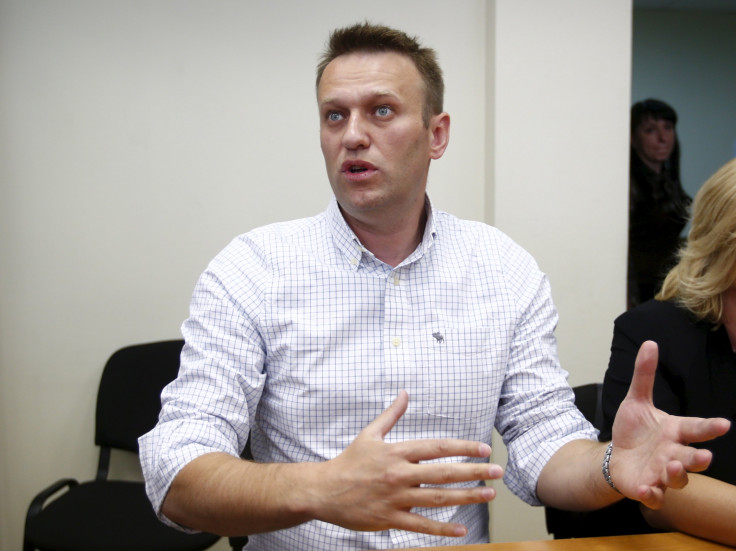Who Is Alexei Navalny? Anti-Putin Russian Opposition Leader Announces 2018 Bid For President

Russian authorities have been trying for years to stamp out Alexei Navalny’s power. But on Tuesday, the opposition leader declared his intentions to run for president in the 2018 election and announced he would make an effort to bring his push for political and financial reform to the Kremlin.
“There have not been competitive elections in Russia for 20 years,” Navalny, a 40-year-old blogger and political activist said in a video statement, as translated by Reuters. “I’m sick and tired of watching ‘elections’ with the candidates just making up numbers, not daring to criticize the pre-determined winner. I understand very well that for me even to become a candidate would not be easy.”
Incumbent President Vladimir Putin has served in his position — with a six year term, which was extended from four years under President Dmitry Medvedev in 2008 — since winning the country’s election in a landslide in March 2012, amid widespread allegations of fraud.
Putin has held executive power for more than 17 years, serving first as prime minister in 1999, then succeeding President Boris Yeltsin after the latter’s unexpected resignation less than a year later, winning reelection by a wide margin in 2004, installing a successor who reappointed him to his prime minister seat in 2008 and finally taking the presidency again in 2012.
Over the past several years, Navalny has been giving the ever-present leader a hard time, with growing support.
Navalny won popularity with his anti-Putin blog, on the LiveJournal platform, which is now available in English. But his activism wasn’t confined to his website. In 2009, Navalny won applause when he grilled senior management of the Russian government-friendly oil company Surgutneftegas, in which he held about $2,000 in shares, on the firm’s sparing dividends and lack of transparency at a shareholder’s meeting in Siberia.
In 2011, Navalny founded the Anti-Corruption Foundation, which, according to its site, is “the only Russia-based [nongovernmental organization] that investigates, exposes and fights corruption among high-ranking Russian government officials.”
After Putin’s 2012 victory, Navalny led protests in Moscow, telling enraged demonstrators that the new president and his allies “robbed us,” the Guardian reported in 2012.
“We don’t have a monopoly, but we are the people — we have a voice,” he shouted at the time. “We are the power here!”
Navalny hasn’t shied away since. In March 2012, he accused a key Putin ally of corruption, only to be jailed for corruption himself little over a year later — a charge the European Union said posed “serious questions.” When his five-year sentence sparked a wave of rallies and protests, the government unexpectedly released him on bail.
Following his brother’s arrest in December 2014, Navalny led a 2,000-person strong protest near the Kremlin, resulting in more than 100 arrests, including his. He was quickly put on house arrest, then declared in January 2015 that he had no intentions of complying with the sentence and cut off his monitoring device. In May, Navalny and his fellow anti-corruption protestors faced violence from paramilitary officers during their demonstration in southern Russia. Navalny accused “authorities” of coordinating the attacks.
While Navalny possesses the necessary political talent of knowing how to rile up a crowd, it’s unclear whether the Russian government can lean on his case of alleged corruption to keep him from running. The Supreme Court overturned a lower court ruling that would sentence Navalny to five years in prison in November. In early December, however, a retrial began, prompting critics to cite political motivations.
© Copyright IBTimes 2024. All rights reserved.












